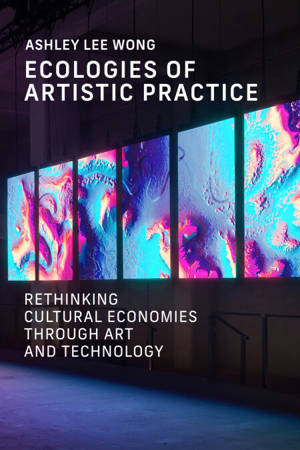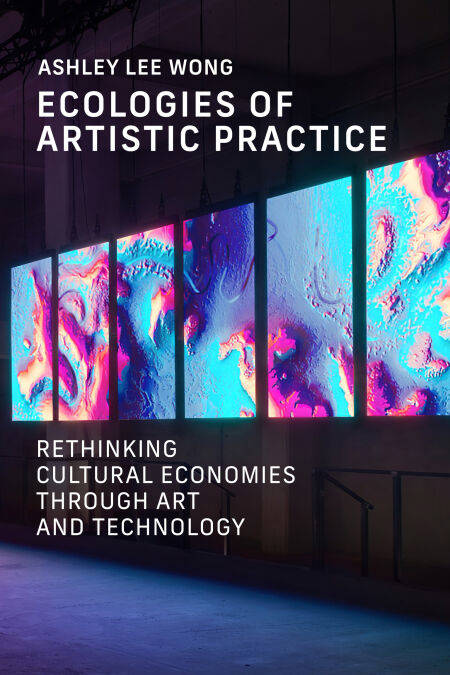
- Afhalen na 1 uur in een winkel met voorraad
- Gratis thuislevering in België vanaf € 30
- Ruim aanbod met 7 miljoen producten
- Afhalen na 1 uur in een winkel met voorraad
- Gratis thuislevering in België vanaf € 30
- Ruim aanbod met 7 miljoen producten
Zoeken
Ecologies of Artistic Practice E-BOOK
Rethinking Cultural Economies through Art and Technology
Ashley Lee Wong
€ 49,28
+ 49 punten
Omschrijving
An in-depth look at how we make and circulate art today, and how creative and economic processes shape the meaning and value of artworks.
In Ecologies of Artistic Practice, Ashley Lee Wong explores the economic relationships of artists working at the nexus of art and technology as they negotiate a means to make art in a neoliberal creative economy. Wong looks at the diverse ways in which artworks circulate, both online and offline, in galleries, on digital platforms, and on media facades, and investigates some of the mechanisms that enable artists to create works, including selling artworks and NFTs, grants, licensing, commissions, and artist residencies. The book also looks at the ways in which artists collaborate with corporations and develop practices as commercial entities themselves.
The book provides unique insights into the diverse creative and economic processes that shape the meaning and value of artworks. Wong seeks to shift away from notions of individual authorship and finite artworks that can be bought and sold, and instead toward an understanding of artistic practices as collaborative, social, and cultural processes. Rather than critique this economy, Ecologies of Artistic Practice opens space for engaging in hypercommercialized contexts, while considering how money is not an end goal, but a means to initiate or continue an artistic process.
In Ecologies of Artistic Practice, Ashley Lee Wong explores the economic relationships of artists working at the nexus of art and technology as they negotiate a means to make art in a neoliberal creative economy. Wong looks at the diverse ways in which artworks circulate, both online and offline, in galleries, on digital platforms, and on media facades, and investigates some of the mechanisms that enable artists to create works, including selling artworks and NFTs, grants, licensing, commissions, and artist residencies. The book also looks at the ways in which artists collaborate with corporations and develop practices as commercial entities themselves.
The book provides unique insights into the diverse creative and economic processes that shape the meaning and value of artworks. Wong seeks to shift away from notions of individual authorship and finite artworks that can be bought and sold, and instead toward an understanding of artistic practices as collaborative, social, and cultural processes. Rather than critique this economy, Ecologies of Artistic Practice opens space for engaging in hypercommercialized contexts, while considering how money is not an end goal, but a means to initiate or continue an artistic process.
Specificaties
Betrokkenen
- Auteur(s):
- Uitgeverij:
Inhoud
- Aantal bladzijden:
- 228
- Taal:
- Engels
- Reeks:
Eigenschappen
- Productcode (EAN):
- 9780262382762
- Verschijningsdatum:
- 26/05/2025
- Uitvoering:
- E-book
- Beveiligd met:
- Adobe DRM
- Formaat:
- ePub

Alleen bij Standaard Boekhandel
+ 49 punten op je klantenkaart van Standaard Boekhandel
Beoordelingen
We publiceren alleen reviews die voldoen aan de voorwaarden voor reviews. Bekijk onze voorwaarden voor reviews.







